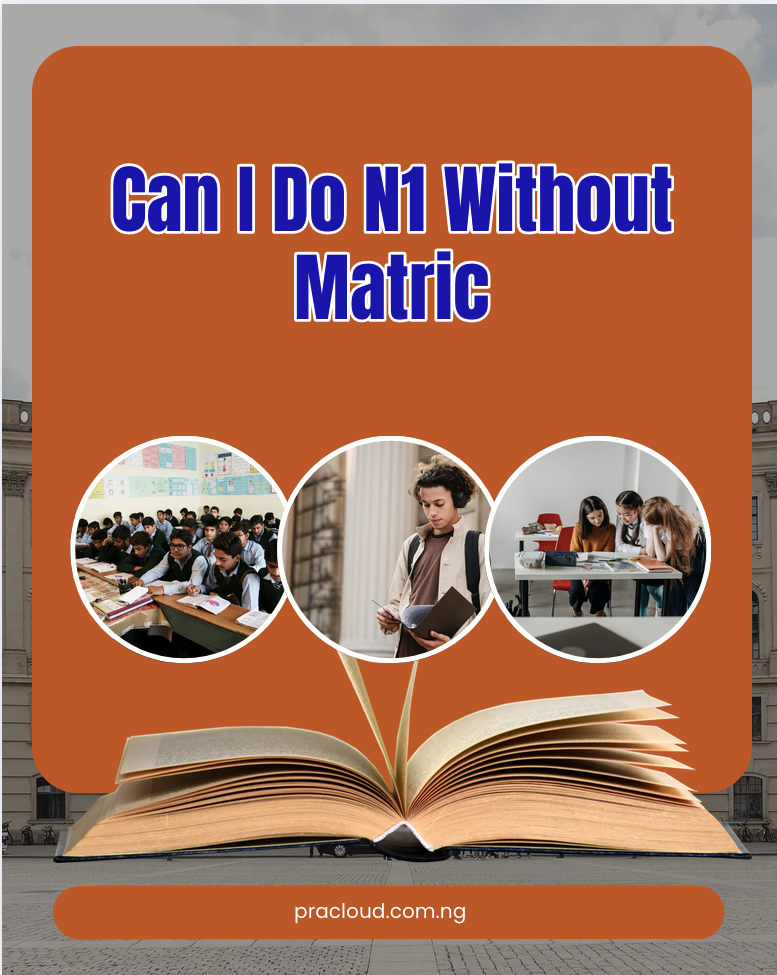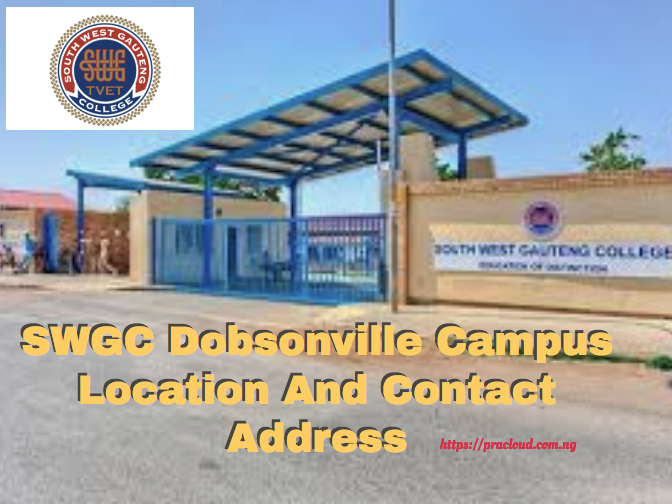Can I Do N1 Without Matric
Can I Do N1 Without Matric
Can I Do N1 Without Matric
How to Start N1 Courses Without a Matric Certificate:
Many people believe that completing matric (Grade 12) is the only way to further their education or start a career in South Africa, but that is not always true, especially when it comes to N1 courses. If you have wondered, “Can I do N1 without matric?” the answer is encouraging. Yes, it’s possible to start certain N1 programs even if you do not have a matric certificate, as long as you meet the basic entry requirements set by the college or training institution.
N1 courses are the first level of National Technical Certificates (NTC), focusing on trades like electrical engineering, mechanical engineering, fitting and turning, welding, and other artisan-related fields. These programs are offered at accredited Technical and Vocational Education and Training (TVET) colleges across South Africa. Many of these colleges allow applicants without matric to enroll, provided they have at least Grade 9 or equivalent qualifications and show competency in key subjects such as Mathematics and Physical Science.
Choosing an N1 course without matric is a practical path if you enjoy working with your hands and want to build a career in technical or engineering trades. It is an excellent way to gain in-demand skills that lead to well-paying jobs in industries like manufacturing, construction, and maintenance.
Not having matric does not mean the end of your educational journey. By starting with N1, you can progress through N2, N3, and beyond, opening doors to apprenticeships and higher qualifications. Check with your nearest TVET college for specific requirements, and take the first step toward a rewarding career in engineering or skilled trades, even without a matric certificate.
Different Types of Courses You Can Do Without Matric in South Africa
Not having a matric certificate does not mean your career opportunities are limited. In South Africa, individuals without matric can enhance their skills and employability by enrolling in online or offline courses. The duration of these programs can range from a few weeks for short courses to up to three years for vocational training programs.
Upon completing these courses, students receive a certificate that confirms they have acquired the necessary skills and knowledge to succeed in the workplace. Some of the main types of courses available without matric include:
Certificate Courses:
- These are short courses offered in a wide range of fields. They vary in length and level, from basic Short Certificate Courses to more advanced Comprehensive Certificate Courses, giving students flexible options depending on their learning goals.
Accredited Courses:
- Recognised by the Department of Higher Education and Training and accredited by independent bodies, these courses can help students earn qualifications equivalent to a matric certificate, providing a strong foundation for further learning or career growth.
Vocational Training:
- Provided by TVET (Technical and Vocational Education and Training) colleges, these programs equip students with practical skills for the workplace. Completing a vocational program awards a National Certificate: Vocational (NCV), which is equivalent to a matric certificate.
Completing these courses can improve employment prospects across various industries, including:
Hospitality and Tourism: Opportunities exist as housekeepers, bartenders, or innkeepers.
Beauty and Personal Care:
- Students can train as nail technicians, facialists, or make-up artists, even running a home-based salon.
Finance and Accounting:
- Courses provide skills in budgeting, reporting, and risk management for small to medium businesses.
Childcare:
- Certifications in daycare, creche management, or child psychology prepare students for roles working with children.
Engineering and Technical Fields:
- TVET courses in welding, toolmaking, and mechanical repair open doors to mining, automotive, and other engineering industries.
These pathways show that not having matric doesn’t stop you from gaining skills, earning certifications, and building a rewarding career in South Africa.
Popular Short Courses Without Matric in South Africa
Not having a matric certificate does not mean you can’t gain valuable skills or start earning an income. For students exploring courses without matric, it’s important to choose programs that align with their career goals and future employment opportunities. Short courses are a popular option because they are practical, affordable, and can open doors to steady employment.
Some of the most sought-after short courses without matric in South Africa include:
Child Day Care: This course trains students to care for children and support their mental and emotional development. It also teaches effective communication skills for interacting with children and managing business tasks. Graduates can pursue roles such as a daycare administrator or babysitter.
Financial Management:
- Students learn basic accounting principles, how to interpret income statements, and how to analyse financial documents. Completing this course can lead to entry-level roles in finance departments or provide a foundation for further advanced courses.
Make-up Application:
- This course introduces students to professional techniques, facial anatomy, tools, and proper communication skills required in a salon setting. Graduates can find employment in salons or even start their own beauty business.
Short course certifications help build credibility and demonstrate to employers that the student has acquired practical skills from a recognised program. These courses are particularly appealing because of their:
Duration:
- Most courses can be completed in 4 to 8 months.
Flexibility:
- Many courses are offered online, often with access to study groups and tutors.
Affordability:
- Fees are generally lower than traditional courses, and online options save on travel costs.
Practical Skills:
- Programs focus on hands-on learning, including business English and other workplace-ready skills.
Career Prospects:
- They equip students with specialized skills to prepare for employment or entrepreneurship.
Short courses without matric provide a quick, effective way to gain skills, boost employability, and start building financial independence in South Africa.
Are There Accredited Courses You Can Do Without Matric in South Africa?
Yes, students in South Africa can pursue accredited courses even without a matric certificate. Choosing an accredited program is important because it ensures the course meets quality standards, the institute is recognised, and graduates improve their chances of finding employment.
Accredited courses without matric often award a National Qualification Framework (NQF) level upon completion. The NQF system in South Africa ranges from entry-level qualifications at NQF 1 (Grade 9) to doctoral degrees at NQF 10. Matric or Grade 12 is typically equivalent to NQF level 4, so completing an accredited course at this level or higher can be considered equivalent to matric.
Some examples of accredited courses you can do without matric include:
National Certificate:
Bookkeeping:
- This widely recognised course requires a minimum of Grade 10 or NQF level 2 for admission. Students complete subjects totaling 120 credit points and graduate with an NQF level 3 certification, gaining practical bookkeeping and financial management skills.
National Certificate:
- Small Business Financial Management: This nine-month course equips students with essential business and financial skills, including managing transactions and interacting with clients professionally. Completing 120 credit hours awards students an NQF level 4 certification, which is considered equivalent to a matric certificate.
Graduates who achieve NQF level 4 through accredited courses can use their qualification to access further studies, such as enrolling in a Bachelor of Business Administration (BBA) or other degree programs.
How to Choose the Right Course Without Matric in South Africa
Choosing the right course without matric in South Africa requires careful planning, just like selecting any other educational program. Prospective students should research the courses available, the skills they will gain, and the National Qualification Framework (NQF) level they will achieve. Completing an accredited course at NQF level 4 can serve as a matric equivalent, allowing you to access employment opportunities or continue to higher education.
Since this could be a second chance for many to pursue their educational goals, it’s important to consider several key factors before enrolling:
Course Duration:
- Courses can range from a few months to three years.
- Students should decide how much time they can realistically dedicate to their studies to ensure they can complete the program successfully.
Cost:
- Affordability is an important consideration.
- Some students may prefer short-term or online courses that are less expensive, while others may invest in longer vocational programs for greater career prospects.
Accreditation and Reputation:
- Enrolling in an accredited course from a reputable institute ensures quality education and enhances your credibility with future employers.
- Accreditation also ensures that your qualification is officially recognised and valued in the job market.
Flexibility:
- Many students balance work, family, or other commitments.
- Online or distance-learning courses offer the flexibility to study from home, making it easier to manage personal responsibilities while gaining new skills.
Career Opportunities with Courses Completed Without Matric in South Africa
Not having a matric certificate doesn’t mean your career options are limited. South Africans who pursue education through short courses, accredited programs, or vocational training can gain valuable skills and knowledge that prepare them for specific job roles. Completing a course without matric can open doors to a variety of employment opportunities and help you build a stable and rewarding career.
Some of the career paths available to students who complete courses without matric in South Africa include:
Bookkeeper:
- Bookkeepers play a key role in managing financial transactions for businesses.
- They learn to prepare and analyse financial documents such as income statements, helping companies maintain accurate financial records.
Office Administrator:
- Office administrators assist with day-to-day office operations, organise documents, implement office policies, and may even help coordinate events.
- This role requires strong organisational and communication skills.
Welder:
- Welders work in factories, construction sites, or offshore environments.
- They are responsible for designing, fabricating, and welding metal structures, often using heavy machinery and specialised tools.
Customer Service Representative:
- This role suits individuals with excellent communication skills and a problem-solving mindset.
- Customer service representatives interact with clients via phone, email, or in person to address queries and provide solutions efficiently.
Logistics Manager:
- Logistics managers oversee the storage and movement of goods in warehouses or consumer goods companies. They ensure products are delivered efficiently and according to organisational requirements, making this a critical role in supply chain management.
Contact details
- Visit: 123 Francis Baard Street, Pretoria, South Africa
- Private Bag X174, Pretoria, 0001
- Contact Details: 0800 87 2222/+ 27 12 312 5911
- Email: callcentre@dhet.gov.za
Pursuing an N1 course without a matric certificate is a practical pathway for those looking to build a career in technical or engineering fields. With the right entry requirements, such as a Grade 9 or 10 qualification, students can enroll in N1 programs offered at TVET colleges across South Africa. Completing N1 equips learners with hands-on skills in trades like electrical engineering, mechanical work, welding, and more, making them job-ready and highly employable. Visit The Official Website For More.
Other site:
Can you study at a TVET college without matric?
Is a TVET college free?
Which TVET colleges offer bridging courses?
Is GCC registered?
Is Gauteng City College registered with Umalusi?
Is CJC a private or public college?
Which courses does Central Johannesburg College offer?





